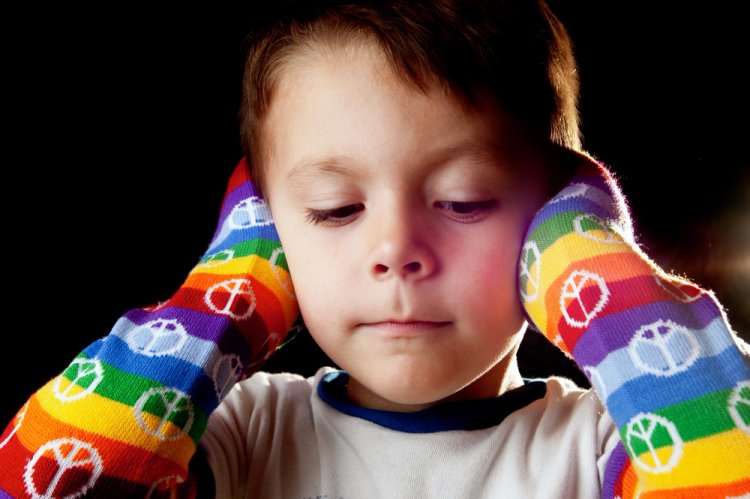Beyond the Spectrum: Exploring the Complexities of Asperger's
Asperger Syndrome, often referred to simply as Asperger's, is a developmental disorder characterized by significant difficulties in social interaction and nonverbal communication, along with restricted and repetitive patterns of behavior and interests. Named after the Austrian pediatrician Hans Asperger, who first described it in the 1940s, Asperger Syndrome is considered to be on the milder end of the autism spectrum.

Characteristics
Social Interaction and Communication
Individuals with Asperger Syndrome typically exhibit challenges in social interaction. They may have difficulty understanding social cues, maintaining eye contact, and engaging in reciprocal conversations. They may also struggle with understanding the nuances of social relationships and may appear socially awkward or insensitive unintentionally.
In terms of communication, individuals with Asperger Syndrome often have proficient language skills. However, they may struggle with the pragmatic aspects of language, such as understanding sarcasm, irony, or metaphors. Additionally, they may exhibit a formal style of speech and have difficulty modulating their tone of voice according to the social context.
Restricted and Repetitive Behaviors
Another hallmark feature of Asperger Syndrome is the presence of restricted and repetitive behaviors and interests. Individuals with Asperger's may develop intense, focused interests in specific topics or activities. These interests may be pursued with great enthusiasm and depth of knowledge. However, they may find it challenging to shift their focus away from these interests, leading to inflexible behavior patterns.
Individuals with Asperger Syndrome may also engage in repetitive behaviors, such as hand-flapping, rocking, or echolalia (repeating sounds or phrases). These behaviors serve as self-soothing mechanisms or ways to cope with sensory overload.
Diagnosis
Diagnosing Asperger Syndrome can be challenging, as there is no specific medical test for the condition. Instead, diagnosis relies on a comprehensive evaluation of the individual's developmental history, behavior, and symptoms. Clinicians typically use standardized assessment tools, interviews with the individual and their caregivers, and observations of the individual's behavior in various settings to make a diagnosis.
It's important to note that the diagnostic criteria for Asperger Syndrome have evolved over time. In the fifth edition of the Diagnostic and Statistical Manual of Mental Disorders (DSM-5), published by the American Psychiatric Association, Asperger Syndrome was incorporated into the broader category of Autism Spectrum Disorder (ASD). As a result, some individuals who would have previously been diagnosed with Asperger Syndrome may now receive a diagnosis of ASD.
Management and Support
While there is no cure for Asperger Syndrome, early intervention and appropriate support can greatly improve outcomes for individuals with the condition. Treatment and management strategies typically involve a multidisciplinary approach, addressing the individual's unique needs across various domains, including social skills, communication, behavior, and sensory processing.
Behavioral and Educational Interventions
Behavioral interventions, such as Applied Behavior Analysis (ABA), can help individuals with Asperger Syndrome learn new skills and behaviors, including social skills, communication strategies, and adaptive behaviors. Educational interventions may involve individualized education plans (IEPs) tailored to the individual's strengths and challenges, as well as accommodations and modifications to support their learning in academic settings.
Social Skills Training
Social skills training programs can help individuals with Asperger Syndrome develop and improve their social skills, such as initiating and maintaining conversations, interpreting social cues, and understanding the perspective of others. These programs often use structured activities, role-playing exercises, and real-life scenarios to teach and practice social skills in a supportive environment.
Supportive Services
Access to supportive services, such as speech therapy, occupational therapy, and counseling, can also be beneficial for individuals with Asperger Syndrome. Speech therapy can help improve pragmatic language skills and communication abilities, while occupational therapy can address sensory processing difficulties and help individuals develop adaptive strategies for daily living. Counseling and psychotherapy can provide support for emotional and behavioral challenges commonly associated with Asperger Syndrome, such as anxiety, depression, and difficulties coping with change.
Community and Peer Support
Building a strong support network can be invaluable for individuals with Asperger Syndrome and their families. Connecting with other individuals with similar experiences through support groups, social clubs, and online communities can provide validation, understanding, and practical advice. Peer mentoring programs and social inclusion initiatives can also help individuals with Asperger Syndrome develop friendships and social connections in their communities.
In conclusion, Asperger Syndrome is a complex developmental disorder characterized by difficulties in social interaction, communication, and behavior. While there is no cure for Asperger Syndrome, early diagnosis and appropriate support can significantly improve outcomes and quality of life for individuals with the condition. Through a combination of behavioral interventions, educational support, social skills training, and access to supportive services, individuals with Asperger Syndrome can learn to navigate the challenges they face and lead fulfilling and meaningful lives.
#AspergerSyndrome #AutismSpectrum #Neurodiversity #SocialInteraction #CommunicationChallenges #RestrictedBehaviors #DevelopmentalDisorder #BehavioralInterventions #SupportiveServices #NeurodiverseCommunity #Awareness #Inclusion #UnderstandingNeurodiversity #AspergersAwareness #SocialSkillsTraining #EarlyIntervention #SupportNetworks #Empowerment #Acceptance #DiverseAbilities
Disclaimer:
The information provided in this article is for educational purposes only and should not be considered medical advice. If you have any health concerns or are experiencing symptoms, it is important to consult with a healthcare professional, such as a doctor or clinic, for proper diagnosis and treatment. Always seek the advice of your doctor or other qualified health provider with any questions you may have regarding a medical condition. Do not disregard professional medical advice or delay in seeking it because of something you have read in this article.
What's Your Reaction?





















